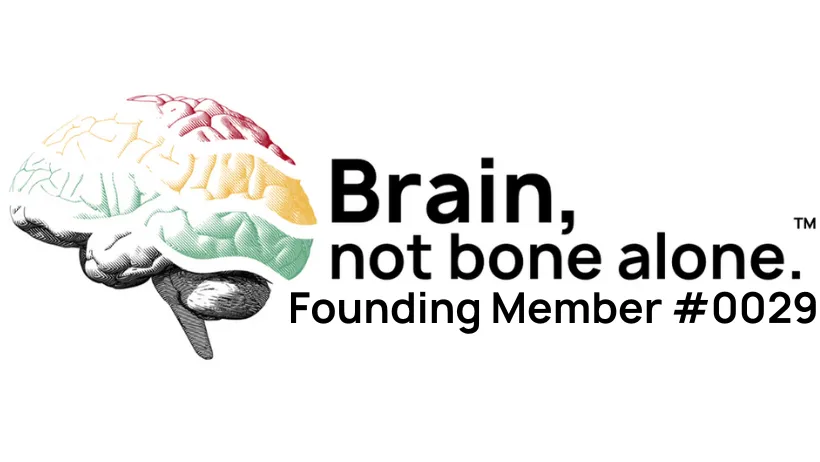
Posture Through the Ages: Why Alignment Matters at Every Stage of Life
The Foundation Years: Posture in Children
As your chiropractor, I've observed firsthand how posture affects patients across the entire lifespan—and why addressing it early can prevent cascading health issues later. Did you know that children begin developing their lifelong posture patterns before they even enter kindergarten? Modern childhood presents unique challenges to developing proper alignment:
The Backpack Burden
The average elementary school student carries 10-15% of their body weight in their backpack—often improperly balanced on developing spines. A study in the Journal of Pediatric Orthopedics found that heavy backpacks cause children to lean forward, affecting their natural spinal curves during critical growth periods.
The Early Tech Effect
Children now spend an average of 7 hours daily on electronic devices, often in compromised positions. What's particularly concerning is how this affects developing bodies. When children hunch forward to see tablets or phones, their still-forming musculoskeletal systems adapt to these positions, potentially creating permanent alterations to natural spinal curves.
Why Early Intervention Matters
What makes childhood posture so critical is the concept of neuroplasticity—the body's ability to create lasting movement and posture patterns. Between ages 5-12, these patterns become increasingly hardwired. Gentle chiropractic adjustments during these formative years help establish healthy alignment patterns that can serve children throughout life.
One young patient, Emma (name changed), came in at age 8 with frequent headaches and shoulder discomfort. Assessment revealed significant forward head posture from tablet use. After six weeks of gentle adjustments and posture education for both Emma and her parents, her symptoms resolved completely. More importantly, she developed awareness of her posture that will benefit her for decades to come.
The Maintenance Years: Adult Posture Challenges
As we enter adulthood, postural challenges shift dramatically:
The Workplace Factor
The average office worker spends 1,700 hours yearly in front of a computer—often in positions that place up to 60 pounds of pressure on the cervical spine. This extended pressure creates what we call "adaptive shortening," where certain muscles permanently tighten while others weaken, making proper posture increasingly difficult to maintain.
The Stress Connection
What's less understood is how emotional states affect posture, and vice versa. Research from Harvard University demonstrates a bidirectional relationship—stress creates muscular tension that alters posture, while poor posture increases stress hormone production. This creates a cycle that affects not just your spine, but your mental health and cognitive function.
The Mid-Life Opportunity
The good news? Adults in their 30s-50s respond remarkably well to posture correction through chiropractic care. These years represent a crucial window when the body still adapts readily to adjustments, but damage hasn't progressed to degenerative stages. Regular adjustments during this phase help maintain spinal alignment, prevent chronic issues, and optimize overall function.
Michael, a 42-year-old programmer, came to our office after years of "tech neck" symptoms. Beyond addressing his immediate pain, our care plan included posture retraining and ergonomic workplace adjustments. Within three months, not only did his pain resolve, but he reported improved breathing capacity, better digestion, and more sustained energy throughout his workday.
The Wisdom Years: Geriatric Posture Preservation
As we move into our senior years, posture takes on even greater significance:
The Balance Factor
Did you know that posture is one of the strongest predictors of fall risk in older adults? A study in the Journal of Gerontology found that forward head posture significantly impairs balance by shifting the body's center of gravity. For seniors, maintaining proper alignment isn't just about comfort—it's about safety and independence.
The Respiratory Connection
Perhaps most surprisingly, posture has profound effects on respiratory function in older adults. Forward head posture and increased thoracic curve can reduce lung capacity by up to 30%. For seniors already experiencing age-related respiratory changes, this can dramatically impact oxygen levels, energy, and cognitive function.
The Mobility Preservation
What I've observed in my older patients is remarkable: those who maintain better posture consistently report greater mobility, fewer pain issues, and higher quality of life. Gentle chiropractic adjustments for seniors focus on maintaining existing function while preventing further postural deterioration.
Martha, an 78-year-old patient, began care primarily for balance concerns. After incorporating regular adjustments focused on improving her posture, she not only reported feeling more stable when walking but experienced an unexpected benefit—improved digestion and better sleep quality, issues she had previously attributed simply to "getting older."
The Universal Truth: Posture Affects Everything
While posture concerns evolve throughout life, one principle remains constant: your spine houses the communication superhighway for your entire body. When vertebrae are properly aligned, nerve signals flow optimally to every organ and system. This isn't just about standing up straight—it's about creating the conditions for your body's natural intelligence to function at its best.
Whether you're a parent concerned about your child's development, an adult dealing with work-related discomfort, or a senior looking to maintain independence, addressing posture through specialized chiropractic care provides benefits that extend far beyond appearance.
Your posture tells the story of your health history—and helps write the next chapter. What story do you want your posture to tell?
Dr. Jackie specializes in posture assessment and correction for patients of all ages. To schedule a comprehensive posture evaluation for yourself or a family member, contact our office at 816-205-8304.
